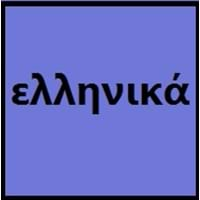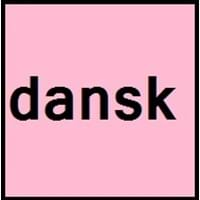Countries
Cyprus, European Union, Greece
Denmark, European Union, Faroe Islands, Greenland, Nordic Council
National Language
Albania, Cyprus, Egypt, France, Greece, Italy, Romania, Turkey, Ukraine
Denmark, Faroe Islands, Germany, Greenland
Second Language
Roman Empire
Not spoken in any of the countries
Speaking Continents
Asia, Europe
Europe, North America, South America
Minority Language
Albania, Armenia, Australia, Hungary, Italy, Romania, Turkey, Ukraine
Argentina, Brazil, Canada, Germany, Greenland, Norway, Sweden, United States of America
Regulated By
Center for the Greek language (Κέντρον Ελληνικής Γλώσσας)
Dansk Sprognævn (Danish Language Committee)
Interesting Facts
- Greek is the longest documented language of all the Indo-European Langauges.
- The official language of education in the Roman Empire was Greek.
- Danish, Norwegian and Swedish are mutually intelligible, that means if u learn Danish is almost like learning three languages in one.
- There are 9 vowels in Danish language, which can be pronounced in 16 different ways.
Similar To
Armenian
Norwegian and Swedish
Derived From
Latin
Old Norse Language
Alphabets in
Greek-Alphabets.jpg#200
Danish-Alphabets.jpg#200
Scripts
Arabic, Latin
Latin
Writing Direction
Left-To-Right, Horizontal
Left-To-Right, Horizontal
Hello
γεια σας (geia sas)
Hallo
Thank You
ευχαριστώ (ef̱charistó̱)
Mange tak
How Are You?
πώς είσαι (pó̱s eísai)
Hvordan har du det?
Good Night
Καληνυχτα (Kali̱nychta)
God nat
Good Evening
καλησπέρα (kali̱spéra)
God aften
Good Afternoon
Καλὸ ἀπόγευμα (Kaló apóyevma)
God eftermiddag
Good Morning
καλημέρα (kali̱méra)
God morgen
Please
παρακαλώ (parakaló̱)
Please
Sorry
συγνώμη (sygnó̱mi̱)
Undskyld!
I Love You
Σε αγαπώ (Se agapó̱)
Jeg elsker dig
Excuse Me
Με συγχωρείτε! (Me synhoríte)
Undskyld mig
Dialect 1
Cappadocian Greek
Scanian
Where They Speak
Greece
Sweden
Dialect 2
Griko
Jutlandic
Where They Speak
Italy
Denmark
How Many People Speak
Not Available
Dialect 3
Mariupol
Bornholmsk
Where They Speak
Ukraine
Island of Bornholm
Speaking Population
Not Available
Native Name
ελληνικά
dansk
Alternative Names
Ellinika, Graecae, Grec, Greco, Neo-Hellenic, Romaic
Dansk, Rigsdansk
French Name
grec moderne (après 1453)
danois
German Name
Neugriechisch
Dänisch
Pronunciation
[eliniˈka]
[d̥ænˀsɡ̊]
Ethnicity
Greeks or Hellenes
Danish people or Danes
Origin
1500 BC
c. 1100 AD
Language Family
Indo-European Family
Indo-European Family
Subgroup
Hellenic
Not Available
Branch
Not Available
Not Available
Early Forms
Proto-Greek, Mycenaean Greek, Ancient Greek, Koine Greek and Medieval Greek
Old Danish, Early Modern Danish
Standard Forms
Modern Greek
Rigsdansk
Language Position
Not Available
Signed Forms
Greek Sign Language
Signed Danish
Scope
Individual
Individual
ISO 639 6
ells
Not Available
Glottocode
gree1276
dani1284
Linguasphere
56-AAA-a
5 2-AAA-bf & -ca to -cj
Language Type
Living
Living
Language Linguistic Typology
Subject-Verb-Object
Subject-Verb-Object
Language Morphological Typology
Fusional, Synthetic
Fusional
Greek and Danish Greetings
People around the world use different languages to interact with each other. Even if we cannot communicate fluently in any language, it will always be beneficial to know about some of the common greetings or phrases from that language. This is where Greek and Danish greetings helps you to understand basic phrases in Greek and Danish language. Greek word for "Hello" is γεια σας (geia sas) or Danish word for "Thank You" is Mange tak. Find more of such common Greek Greetings and Danish Greetings. These greetings will help you to be more confident when conversing with natives that speak these languages.
Greek vs Danish Difficulty
The Greek vs Danish difficulty level basically depends on the number of Greek Alphabets and Danish Alphabets. Also the number of vowels and consonants in the language plays an important role in deciding the difficulty level of that language. The important points to be considered when we compare Greek and Danish are the origin, speaking countries, language family, different greetings, speaking population of these languages. Want to know in Greek and Danish, which language is harder to learn? Time required to learn Greek is 44 weeks while to learn Danish time required is 24 weeks.





